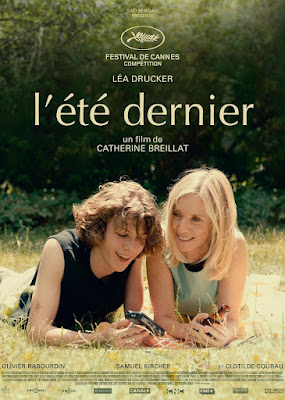Catherine Breillat proves with Last Summer that, even in her mid-70s, she hasn’t lost either her propensity or her appetite to defy norms and push the envelope in matters involving uncomfortable, unorthodox and amoral expressions of women’s private desires. Made a decade after her previous film Abuse of Weakness, this remake of the Danish film Queen of Hearts marked an intriguing overlap between prestige cinema aesthetics and dangerously salacious themes. Its central crux – viz. a forbidden affair between a middle-aged woman and her teenage stepson – might’ve been tailormade for an exercise in saucy softcore in most other filmmakers’ hands; but, not in Breillat’s, as her objective was a non-exploitative and non-judgemental dive into a queasy and murky quagmire that a problematic relationship such as this constitutes, alongside the associated elements of sexual politics and power, and made in the kind of measured, unsentimental and analytic style that’s – in absence of a suitable term – oh-so French. In the narrative’s sharpest irony, Anne (Léa Drucker) is a capable and committed attorney who represents victims of sexual abuse, which therefore underscored how transgressions can often defy easy pigeonholing. Furthermore, the way her husband Pierre (Olivier Rabourdin), with whom her marriage has long entered a stage of convenient stasis, decides to believe her over his moody and rebellious son Théo (Samuel Kircher) – when he decides to reveal the secret liaison on account of the angst he experiences upon Anne’s decision to break-off – disconcertingly presaged the devastating revelations concerning Alice Munro. The film was at its strongest in the first and last thirds, separated by a relatively staid middle section when the affair actually unfolds, and was led by a courageous turn by Drucker.
Director: Catherine Breillat
Genre: Drama/Romantic Drama/Marital Drama
Language: French
Country: France


No comments:
Post a Comment